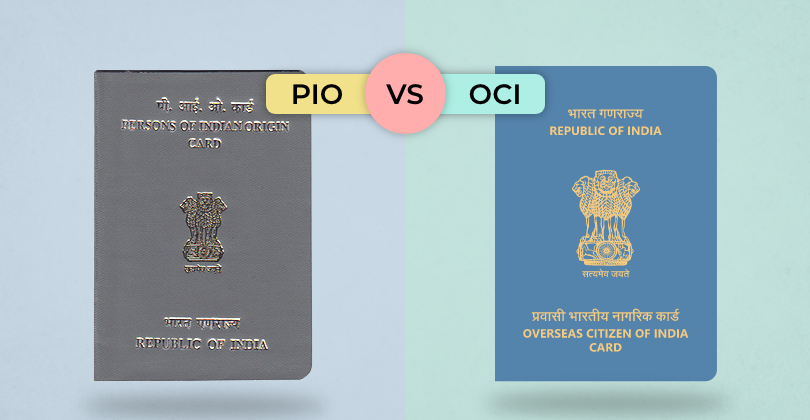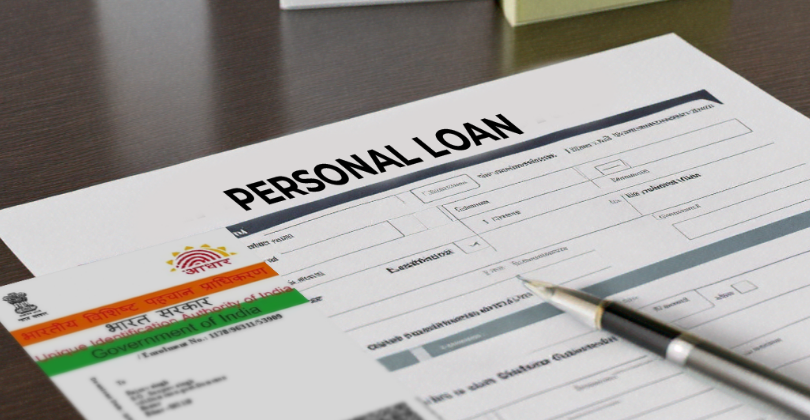Are you of Indian origin and living abroad? You've probably come across terms like PIO and OCI. These cards offer different benefits, but it can
Are you a freelancer in need of money but unsure if you can get a personal loan? Working for yourself is great, but getting a loan can be tough. Worldwide, there are around 1.5 billion freelancers, according to a study. This means lenders need to be more flexible to help freelancers.
Personal loans usually need proof of regular income. This can be tricky for freelancers because their income can be irregular. However, some lenders understand freelancers' situations and offer loans without strict income requirements. So, can freelancers get personal loans without providing the name of an employer? Let's find out.
Understanding Loan Challenges as a Freelancer
Freelancers encounter various hurdles when seeking loans due to their unique financial circumstances. Let's explore the challenges they face:
-
Inconsistent Income
Freelancers often have irregular income streams, which can make it challenging to demonstrate a stable source of income to lenders. Traditional lending institutions prefer borrowers with stable paychecks or consistent employment/traditional employment, making it difficult for freelancers to meet their loan requirements.
-
Hassle-free Documentation
Unlike salaried workers who receive monthly pay stubs, freelancers face unique challenges in providing traditional financial records, often needing W-2 forms or employer-issued pay slips. A lender may ask freelancers for alternative documents like bank statements, tax returns, or client contracts to demonstrate their eligibility.
-
Credit History
Your credit score, which comprises your credit history, is a prerequisite for receiving positive credit terms and interest rates. However, freelancers, new ones or those with new-to-credit need help proving their creditworthiness to lenders. Freelancers without a strong credit history are considered high-risk borrowers and lead to higher interest rates or outright loan rejections.
-
Risk Perception
Because of the volatility of self-employment, banks and other lenders consider freelancers to be high-risk borrowers. Lenders may view this as a risk and impose tougher loan requirements, high down payments, or less favourable loan conditions on freelancers than on paid employees with consistent revenue.
📗 Read more- The Quickest Way To Get Approved For A Loan
Strategies to Secure a Personal Loan For Freelancers
Freelancers face several challenges when seeking a personal loan. Here are the tips for freelancers to enhance their chances of securing a personal loan without proof of income they need.
Maintain a good credit score: Personal loans are unsecured. Thus, a credit score is the primary metric used by lenders to assess your creditworthiness. To increase your chances of loan approval, work on improving your credit score to 650 or higher. Your credit score can be improved by taking smaller credit and making timely payments.
Consider Adding a Guarantor or Co-applicant: Lack of sufficient income documentation usually reduces your chance of getting a loan, but if you have an earning guarantor or co-applicant with steady income, it can increase your eligibility. Equating your income to theirs and vice versa improves the loan acceptance chances.
Explore Alternative Income Sources: While your primary income may be uncertain, consider showcasing income from other sources, such as investments or rental properties. Including these additional income streams in your loan application can strengthen your eligibility.
Highlight Healthy Bank Statements: Although the loan application lacks support from income statements, presenting positive bank statements covering recent business transactions is an effective way to strengthen the loan application. Ensure a balanced approach and demonstrate financial stability to impress lenders.
Consider Non-Banking Finance Companies (NBFCs): NBFCs tend to have more flexible terms for credit which differ from traditional banks. They keep 100% of cash reserves as a fund for lending through online platforms, which comes in handy for organisations and banks. It can approve loans for individuals without income documents.
Personal Loan Eligibility for Self-Employed Individuals
As a freelancer individual, you can apply for a quick personal loan provided you meet the following loan requirements criteria:
| Criteria | Requirement |
|---|---|
| Nationality | Indian |
| Business Vintage | At least three years |
| CIBIL Score | 685 or above |
| Age | 21 to 58 years |
| Criteria | Requirement |
|---|---|
| Nationality | Indian |
| Business Vintage | At least three years |
| CIBIL Score | 685 or above |
| Age | 21 to 58 years |
What Are the Requirements for a Personal Loan?
The lender generally requires the following loan requirements documents, which must be authentic and legal:
-
A duly signed application form.
-
Passport-size photograph.
-
Proof of ID – Passport, Voter ID, or PAN Card.
-
Latest Income tax return with computation of income, Last 2 years of the person's Balance sheet with profit and loss certified by a CA.
-
Last 3 months' bank statement or last 6 months' bank passbook.
-
Proof of age – Birth certificate/passport.
-
Proof of residence – Passport/ Utility bill/Allotment letter.
Conclusion
In conclusion, personal loans from various banks and NBFCs are readily available for freelancers in India, making it convenient to cover medical bills, wedding expenses, education costs, home repairs, and more.
For employees, accessing funds for essential needs has become easier than ever. Utilising tools like the Bank Loan EMI calculator can aid in planning expenses throughout the loan duration. Visit KreditBee for seamless loan solutions tailored to freelancers with a minimum monthly income for the best personal loans. With KreditBee, freelancers and employees alike can access competitive loan options to meet their financial requirements effectively.
AUTHOR
KreditBee As a market leader in the Fintech industry, we strive to bring you the best information to help you manage finances better. These blogs aim to make complicated monetary matters a whole lot simpler.







